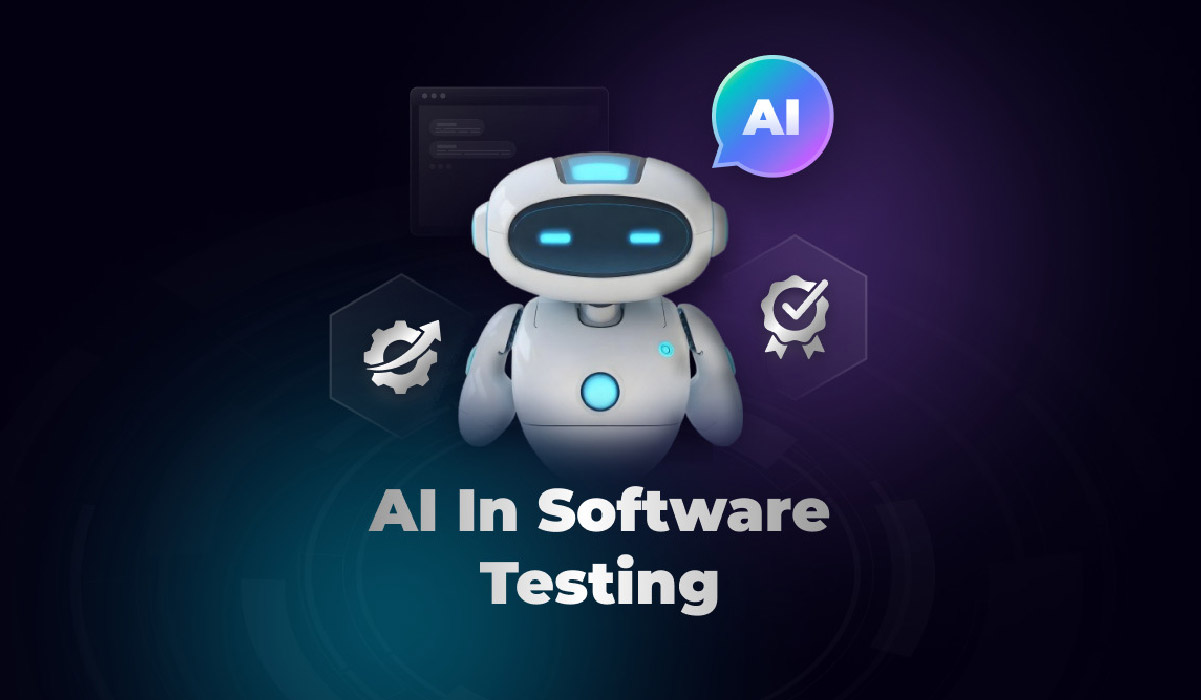In today’s fast-paced software development world, ensuring high-quality applications is more critical than ever.
While effective, traditional testing methods often struggle to keep up with the rapid pace of releases and the complexity of modern applications. This is where AI in testing comes in.
Smart tools powered by artificial intelligence are revolutionizing how software quality assurance (QA) is approached, making testing faster, more efficient, and more reliable. From automating repetitive tasks to predicting defects before they occur, AI transforms how we test software.
In this blog, we’ll explore how AI in software testing is changing the world of QA, the benefits it brings, and how these intelligent tools are enhancing testing practices for teams around the world.
What is AI Testing?
AI systems utilize techniques like machine learning to process data and make logical decisions.
AI testing involves harnessing the power of artificial intelligence to enhance the software testing process. While testing principles remain the same, AI is applied to improve various aspects such as test case creation, execution, and future test maintenance.
Different types of AI agents can be utilized in this process, each specializing in specific areas of software testing to increase efficiency and accuracy.
Additionally, AI testing isn’t just about using AI to enhance testing—it also involves testing AI-powered systems themselves. While the steps for testing these systems are similar to traditional methods, special attention is given to ensuring the proper application of AI within these systems.
What is AI in Software Testing?
AI in software testing has revolutionized the way we approach testing. With the power of AI, software testing can be made more effective, efficient, and reliable. AI-powered testing tools can help automate mundane and repetitive tasks, freeing up human testers to focus on more complex testing scenarios. These tools can also help identify and predict software defects, making the testing process more accurate and thorough.
The use of AI in software testing has become increasingly important as businesses seek to reduce the time and effort required for testing and deployment. By automating repetitive testing tasks, companies can achieve faster release cycles and improve the overall quality of their software. Additionally, AI-powered testing tools can help businesses identify and eliminate defects in the software before they become major issues.
Well, AI-powered testing tools can help businesses achieve faster and more reliable software testing, making them ideal choices for businesses looking to streamline their testing processes.
Best Tools for Software QA In 2025
AI-powered tools are transforming software testing by automating critical processes and boosting efficiency. These tools streamline QA workflows by generating smart test cases, improving reporting, and enhancing analytics, all while minimizing errors and increasing accuracy.
In the next section, we’ll explore some of the top AI testing tools for QA teams and showcase their distinct features and capabilities.
1. Kane AI
Kane AI, developed by LambdaTest, is an innovative AI-Native testing assistant designed to revolutionize software quality assurance (QA). Leveraging advanced Large Language Models (LLMs), Kane AI enables quality engineering teams to create, debug, and evolve end-to-end tests using natural language inputs. This approach simplifies the testing process, making it more accessible and efficient, and showcases the transformative power of AI in software testing.
Key Features:
- Intelligent Test Generation: Automates the creation and evolution of test cases through NLP-driven instructions.
- Smart Test Planning: Converts high-level objectives into detailed, automated test plans.
- Multi-Language Code Export: Generates tests compatible with various programming languages and frameworks.
- Show-Me Mode: Simplifies debugging by converting user actions into natural language instructions for improved reliability.
2. Katalon Studio
Katalon Studio is an all-in-one test automation platform offering AI-driven web, mobile, desktop, and API testing features. Its codeless automation and self-healing mechanisms improve test reliability and reduce maintenance efforts.
Features:
- AI-Powered Test Object Recognition: Identifies and adapts to UI changes, minimizing test script failures.
- Data-Driven Testing: Supports diverse data sets to validate software behavior across scenarios.
- Self-Healing Tests: Automatically updates scripts when applications evolve.
- Built-In CI/CD Integrations: Enables seamless integration with DevOps workflows.
3. Aqua Cloud
Aqua Cloud provides intelligent test management solutions, leveraging AI for test planning and test optimization. It centralizes testing workflows and offers predictive analytics to enhance decision-making.
Features:
- Test Management Automation: Reduces manual overhead with AI-driven workflows.
- Collaboration Tools: Supports cross-functional QA and development team collaboration.
- Scalability: Handles extensive testing needs across large software ecosystems.
- Analytics and Reporting: Provides actionable insights through predictive data analysis.
Future Trends of Using AI in Software QA
AI is poised to transform the QA process, driving efficiency, accuracy, and innovation. Here are key trends shaping the future of AI in QA testing:
- Test Case Generation and Authoring: AI models can analyze historical testing data to generate test cases aligned with an organization’s specific needs. Over time, these models may independently generate complete test cases, reducing manual effort. However, continuous feeding of diverse and extensive testing data is essential for such models to be effective in enhancing AI learning.
- Test Environment Setup: AI can revolutionize the time-intensive task of setting up a test environment. By leveraging data on system performance, configurations, and suggested test cases, AI can automate environment setup, ensuring faster and more accurate configurations tailored to the test scenarios.
- Test Orchestration: AI has the potential to manage end-to-end testing processes autonomously. It can schedule and run tests based on resource availability by accessing real-time data on testing resources and prioritizing tests dynamically in distributed and complex environments. This level of orchestration ensures optimal utilization of testing resources and reduces testing cycle times.
- Visual Testing: AI-based visual testing can identify visual anomalies, reduce false positives, and ensure a more reliable user experience. This approach helps pinpoint visual bugs that can impact the usability and accessibility of software applications.
Wrapping Up
AI is transforming QA by offering advanced solutions that enhance speed, accuracy, and efficiency in software testing. From automating test case creation to predicting defects and generating test data, AI in software testing streamlines the entire testing process, ensuring higher-quality results. As various AI tools highlight, AI-driven testing is becoming an essential part of modern QA strategies.
Integrating AI into QA practices allows organizations to accelerate release cycles, reduce testing costs, and improve product quality. Embracing AI in QA is a strategic move to stay competitive and ensure robust software performance.
For More Information, Visit Megamagazine















